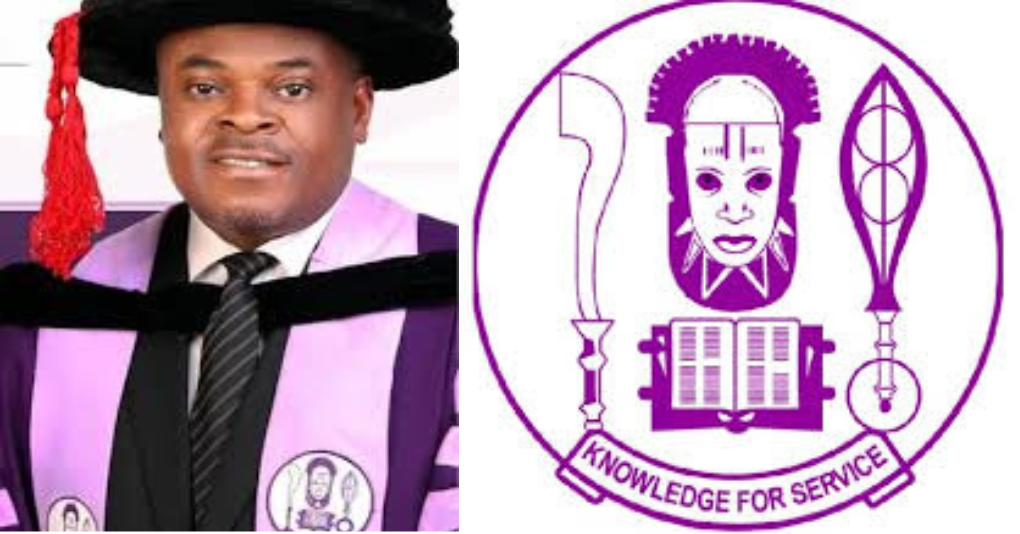As Professor Edoba Bright Omoregie, SAN, assumes office today as the 11th substantive Vice-Chancellor of the University of Benin (UNIBEN), the institution and its stakeholders eagerly anticipate a new era of innovation, inclusivity, and academic excellence. Taking over from Professor Lilian Salami, whose tenure was marked by resilience and significant progress, Professor Omoregie’s leadership comes with high expectations and a strong mandate to elevate UNIBEN further as a center of excellence.
The expectations from Professor Omoregie are immense. As an alumnus of UNIBEN and a distinguished scholar in law, the university community looks to him to harness his wealth of experience to tackle pressing issues, such as funding, infrastructural deficits, and enhancing research outputs. There is a growing demand for improved facilities to accommodate the increasing student population and for initiatives that will make the university more globally competitive. The students, staff, and alumni expect a leader who will consolidate on past successes while also addressing lingering challenges.
One of the critical challenges that Professor Omoregie must prioritize is the de-accreditation of the Faculty of Veterinary Medicine. This setback is particularly significant because UNIBEN is the only institution offering veterinary medicine in South-South Nigeria, making it a crucial provider of veterinary education and expertise in the region. The de-accreditation has not only affected the faculty’s reputation but also denied aspiring veterinary professionals in the South-South access to this vital field of study.
Reviving the Faculty of Veterinary Medicine will require immediate and strategic action. Professor Omoregie must work closely with accrediting bodies, address gaps in facilities and staffing, and align the faculty’s curriculum with national and global standards. By doing so, he can restore the program’s accreditation, reaffirm UNIBEN’s leadership in this field, and ensure that the university continues to meet the critical need for veterinary professionals in the region.
Improving student welfare remains another area of focus. With a rising number of students, the need for better hostels, adequate lecture halls, and enhanced learning resources cannot be overstated. Professor Omoregie is expected to prioritize the provision of modern facilities and technological tools to enrich the learning environment, ensuring that UNIBEN maintains its reputation as a top-tier institution in Nigeria and beyond.
Staff welfare is equally important. The university’s workforce expects a leader who values their contributions and is committed to improving their working conditions. Timely payment of salaries, opportunities for capacity building, and fostering a harmonious working relationship between management and staff unions are areas where Professor Omoregie’s leadership will be tested.
Furthermore, the academic community looks forward to a renewed emphasis on research and innovation. Stakeholders expect Professor Omoregie to leverage his global connections and vast experience to attract funding for research and establish partnerships with international institutions. This will not only enhance UNIBEN’s research capacity but also position the university as a hub for groundbreaking discoveries and solutions to societal problems.
As he assumes office, Professor Omoregie is advised to embrace inclusivity and collaboration. The strength of any institution lies in its people, and as Vice-Chancellor, he must prioritize open communication with students, staff, and alumni. Adopting a participatory leadership style will ensure that every member of the university community feels valued and invested in the institution’s progress.
Professor Omoregie must also address UNIBEN’s financial challenges by exploring alternative funding sources. Public universities in Nigeria face dwindling allocations, and the ability to attract private investments, secure grants, and foster alumni contributions will be critical. Strengthening UNIBEN’s endowment fund and fostering partnerships with industries can provide the financial muscle needed to drive transformative projects.
By focusing on these critical issues, particularly the de-accreditation of Veterinary Medicine—which affects not only UNIBEN, but also the entire South-South region—Professor Omoregie has the opportunity to leave an indelible mark on the institution. His tenure offers a unique chance to combine tradition with innovation, restoring and enhancing UNIBEN’s standing as a center of excellence. The university community eagerly anticipates the transformative leadership and progress his administration promises.


